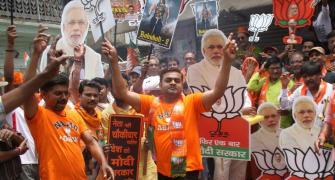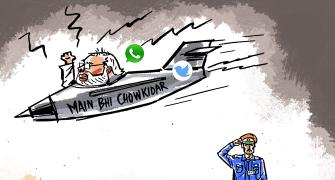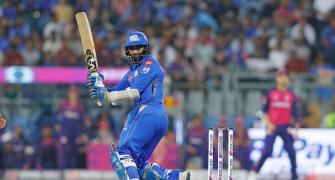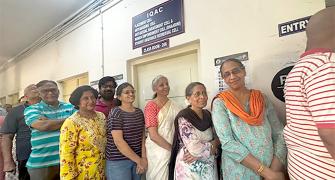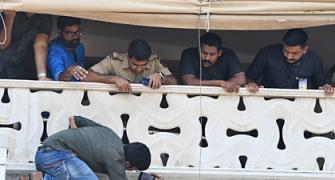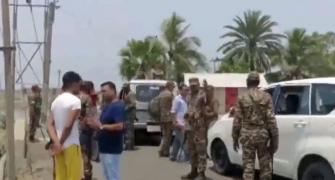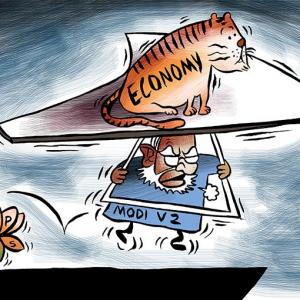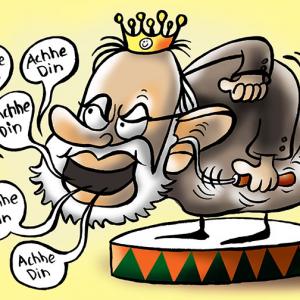By creating groups of secretaries, the Modi government has precluded the need for groups of ministers, which were so ubiquitous in the first decade of this century in New Delhi.
Each group will have a leader who will be expected to steer the schemes for implementation, cutting through the ministerial turf battles.
Illustration: Uttam Ghosh/Rediff.com
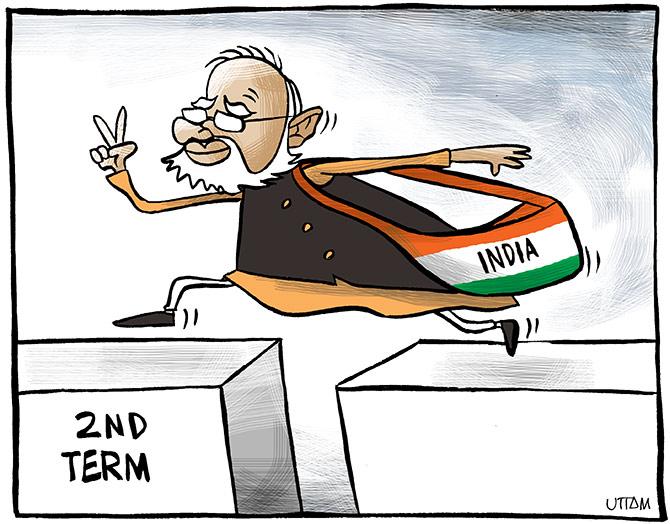
A team of secretaries will now vet major schemes before those are presented to the Prime Minister at Pragati (Pro-Active Governance and Timely Implementation) and other meetings.
The cabinet secretary has made operational this sectoral approach for secretaries, which will be a regular feature of the government.
Each group will have a leader who will be expected to steer the schemes for implementation, cutting through the ministerial turf battles.
“We had developed such an approach in the last two years of the previous government,” said an officer.
But it has now become a more regular phenomenon, with the formation of teams of eight secretaries, each of whom is in charge of a department at the central government.
So not only would a scheme be vetted by the cabinet secretariat before Modi sits down with the secretaries, it would now be tossed among the departments concerned, for self-evaluation at the first stage.
By creating these teams, the Modi government has precluded the need for groups of ministers, which were so ubiquitous in the first decade of this century in New Delhi.
This was one of the decisions taken at the first meeting of Pragati in the second term of the Modi government. In the meeting, Modi said he expected to lay major emphasis on water, fisheries, and animal husbandry as the key themes in this term.
Cabinet secretary P K Sinha has instructed the secretaries to come up with (a) a five-year plan document for their ministry or department, with well-defined targets and milestones, and (b) a significant impactful decision in each ministry, for which approvals will be taken within 100 days.
Both these would be vetted by the sectoral group of secretaries.
Incidentally these sectors were often cross-cutting.
Former revenue secretary Hasmukh Adhia, for instance, headed the sectoral team of secretaries on education in the previous government till he retired.
The nature of the first Pragati meeting this time was different from the first such one held in the previous term of this government.
The latter was less about specific issues and more time was spent to set the terms of engagement of the officers with the prime minister in subsequent meetings.
The main issues flagged in that first meeting by Modi were drought relief and directions for quick project implementation, which were more of immediate priorities than medium-term targets.
Another important difference in the format of the meetings in both editions is that while in the first term then finance minister Arun Jaitley attended the meetings, the details were not made public.
The prime minister conveyed the sense that they were his solo dialogues with the secretaries.
But in the second term he has renewed the meetings with the publicised attendance of other senior ministers, including Home Minister Amit Shah, Defence Minister Rajnath Singh, and Finance Minister Nirmala Sitharaman.
It remains to be seen, however, if these ministers will also be invited for the subsequent monthly meetings.
In the absence of most ministers, the secretaries at these meetings were often able to directly speak to the prime minister about the challenges besetting their departments and frame responses accordingly.
According to protocol, in the presence of the ministers the secretaries are not expected to lead the discussions.
It was in one of those meetings in the first term where the officers aired their concerns about the impact of the Prevention of Corruption Act on the ability of senior government employees to make bold decisions, and that subsequently led the government to amend the Act to offer them more protection.
From March 2015, Modi began monthly meetings with the secretaries to various departments.
There was, however, one meeting held even earlier in June 2014 though it was not classified as part of the series.
There were 29 of those held in the first term of the Modi government, with the last one being in October last year.
Secretaries who were asked to present progress reports on specific areas in these meetings had to show results to the satisfaction of the prime minister. Officials who attended the meetings said interdepartmental issues often got resolved in these meetings, in which Modi often took part in detailed presentations.
The platform also brought on board chief secretaries of states as the press release noted the “uniquely bundling three latest technologies: Digital data management, video-conferencing and geo-spatial technology”.
Another government release issued later said the Pragati meetings had cumulatively reviewed projects with an investment of more than Rs 11.75 trillion.
The reviews widened the definition of projects to include larger schemes like the Ayushman Bharat and specific consumer grievances such as call drops.
The release noted that the meetings had analysed about 320 projects in the three-year period.
They have not only set timelines to complete them but also detailed instructions to solve the problems around any projects.
The timeline for completing many of them even then was set beyond the term of the previous government, with some coming up for completion in 2020.


